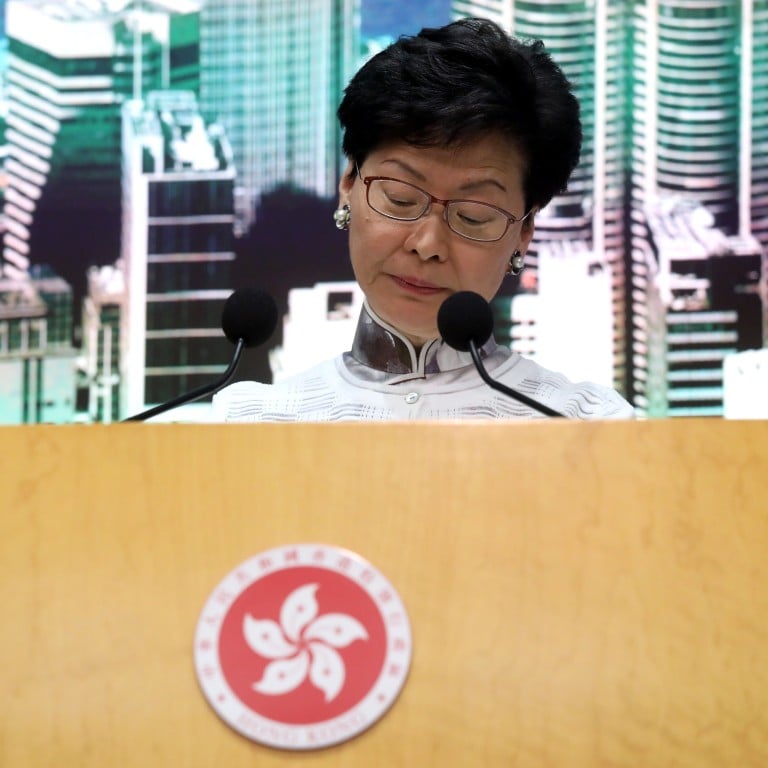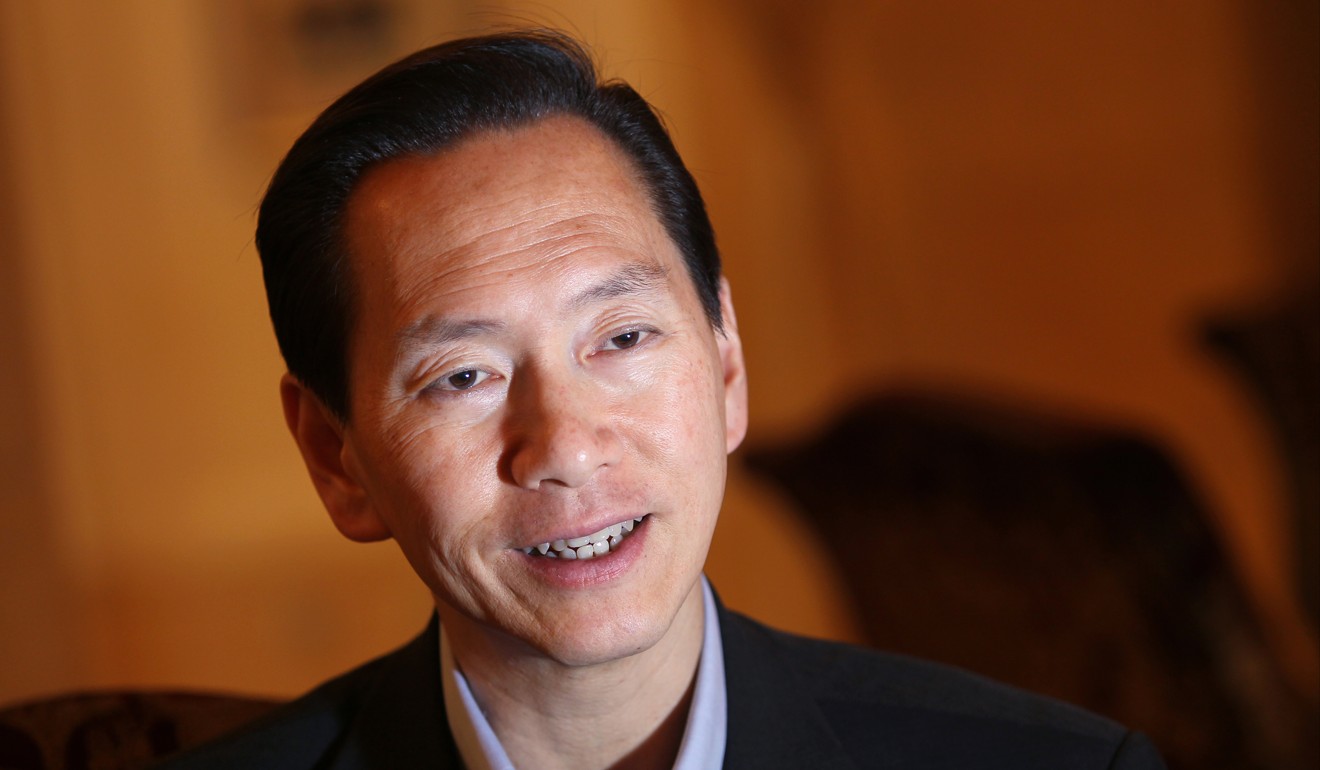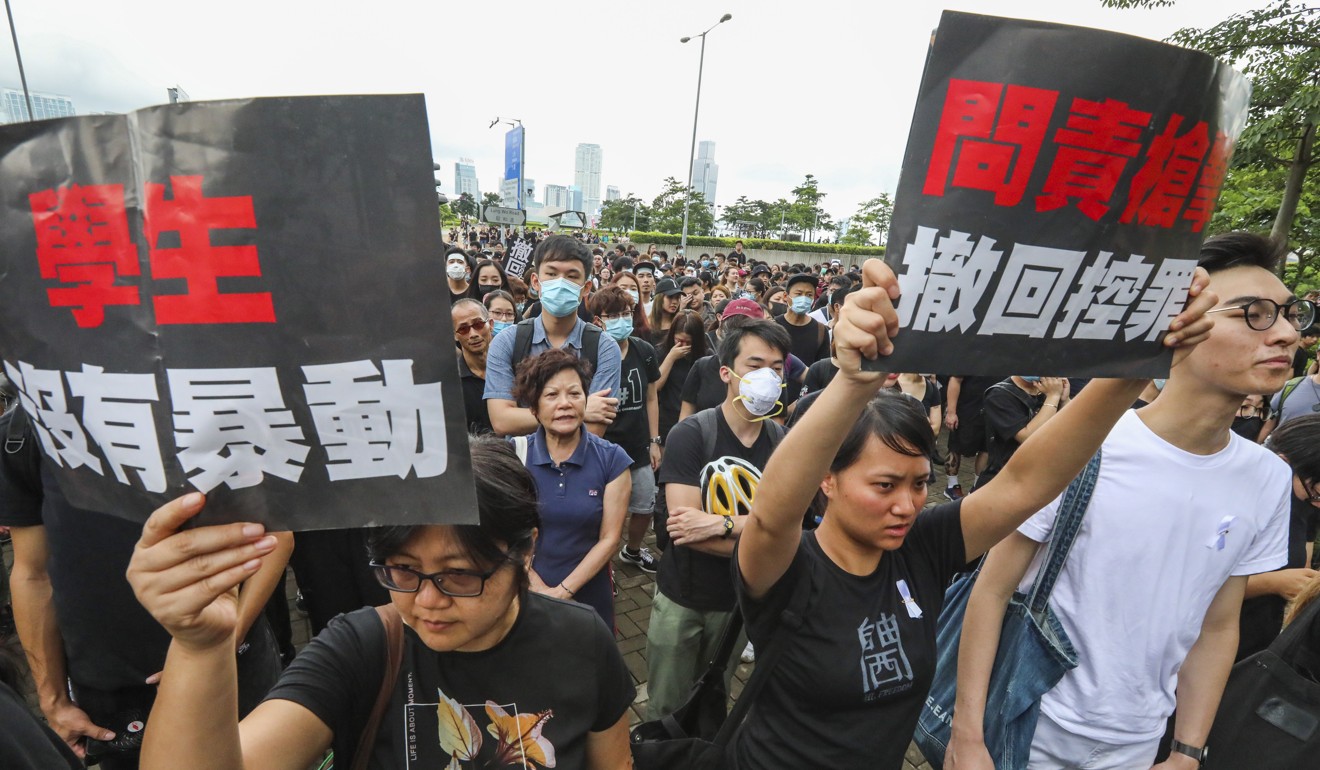
Calls for an apology and a resignation: what can Carrie Lam do to soothe an angry Hong Kong public?
- Insiders and observers admit the room for manoeuvre for chief executive and her own standing with the people remains limited
- Loss of trust created by her handling of the bill will take a long time to redress, they say
While that removed some of the rancour of the past week, insiders and observers admitted the room for manoeuvre for Lam and her own standing with the people remained limited.
The loss of trust created by Lam’s handling of the bill, which would allow the transfer of fugitives to mainland China and other jurisdictions with which Hong Kong lacks an extradition arrangement, would take a long time to redress, they said.
Executive Council convenor Bernard Chan was among her advisers who argued again on Monday that suspension of the bill was tantamount to a withdrawal, and that seen in that light it should no longer cause controversy or suspicion.
Yet there were others who said that one immediate way to soothe sentiments was to accept that suspension did not go far enough. If the government felt that it was tantamount to letting the bill meet a “natural death”, then they should take that small step of withdrawing it. There would be some loss of face but the result would not change, they said.

Former secretary for transport and housing Professor Anthony Cheung Bing-leung was among those who made the call, urging Lam to do so as soon as after her regular meeting with the Executive Council on Tuesday. However, the Exco meeting was cancelled on Monday evening because of blocked roads around government headquarters.
Hong Kong leader’s tough style blamed for fuelling protests
“She attaches importance to following the procedures of legislative process … but members of the public do not have much interest in procedural matters. They are worried that the government has a conspiracy to restart the legislative process later if the bill is not withdrawn,” he said. “Full withdrawal of the bill is the most effective way to ease public concerns.”
While such a concession could be possible, those close to Lam categorically ruled out her resigning to accept responsibility for the damage wrought by the bill. Beijing, which appointed her after her selection by a 1,200-member committee, was clearly not in favour of her quitting, they pointed out.

They said such a resignation would signal weakness on the part of the central government and make future chief executives vulnerable to such pressures, making it harder to find willing and able candidates.
“We have never seen a chief executive step down because of public pressure. Most people in Hong Kong realise the fate of a chief executive is decided by Beijing, not Hong Kong people,” Ivan Choy Chi-keung, a political scientist at Chinese University, said.
Police chief steps back from riot label as Carrie Lam keeps low profile
Asked on a radio show on Monday if Lam ought to resign, Chan dodged the question and said the city chief was “deeply remorseful” and would be more humble. “I hope the public will give her a new chance in the next three years,” he said.
Cheung said Lam, who offered an apology in a written statement on Sunday, should make a public appearance to apologise in person.
He urged Lam to also appoint a commission of inquiry, headed by a judge, to investigate allegations of excessive use of force by police during the clashes with protesters near the government headquarters and the Legislative Council building last Wednesday.

Police had been criticised for their crackdown on protesters, several of whom were shot with rubber bullets, but Lo maintained that his officers had been in grave danger. The clashes left at least 80 people injured, including 22 police officers.
Choy said the commission could be headed by Hong Kong’s first post-handover chief justice Andrew Li Kwok-nang to boost its credibility.
US forced to perform tricky balancing act over Hong Kong extradition bill
But Choy agreed the government might be reluctant to appoint such a commission because it did not want to offend the police force.
The Post understood also that the government was not in favour of a commission of inquiry for fear of the negative impact on the morale of the police force already facing the wrath of an angry public.
Lam, who stayed away from the public eye on Monday, spent the day meeting advisers and university chiefs, secondary school principals and religious leaders.
Teddy Tang Chun-keung, chairman of the Hong Kong Association of the Heads of Secondary Schools and one of the principals Lam met, said she expressed her understanding of the importance of reconciliation with the youngsters. He said she promised she would work on connecting with young people.
Tang suggested to Lam that the government set up an independent committee to review the controversy and prevent a repeat confrontation with the public in future.
But Cheung, a former vice-chairman of the Democratic Party, said the controversy underscored the complete failure of the city’s political system. “The central government can no longer expect the problems in Hong Kong to be resolved by focusing on economic and livelihood issues, while avoiding political reform,” he said, speaking for the first time about the current administration since leaving the government two years ago.
Police adopt ‘softly-softly’ approach to cool tensions with protesters
Choy said one option in theory could be a series of social reforms similar to those introduced by the government after the 1967 riots, sparked by a labour dispute.
Although the terrorist means used by the rioters were condemned then, a sober assessment was that there were social ills that badly needed fixing. The government then produced a set of new policies, including compulsory education, in the 1970s.
But most major social reforms had already been undertaken and the government had to be careful also not to resort to dispensing giveaways in the absence of policy innovation and end up being accused of being populist, he said.


